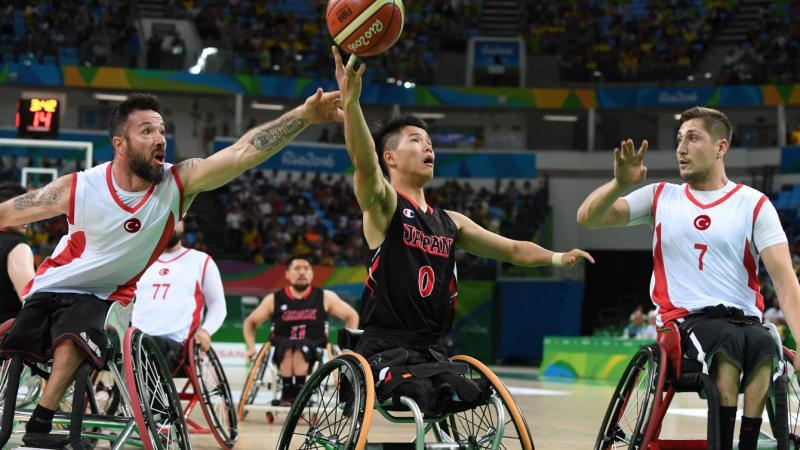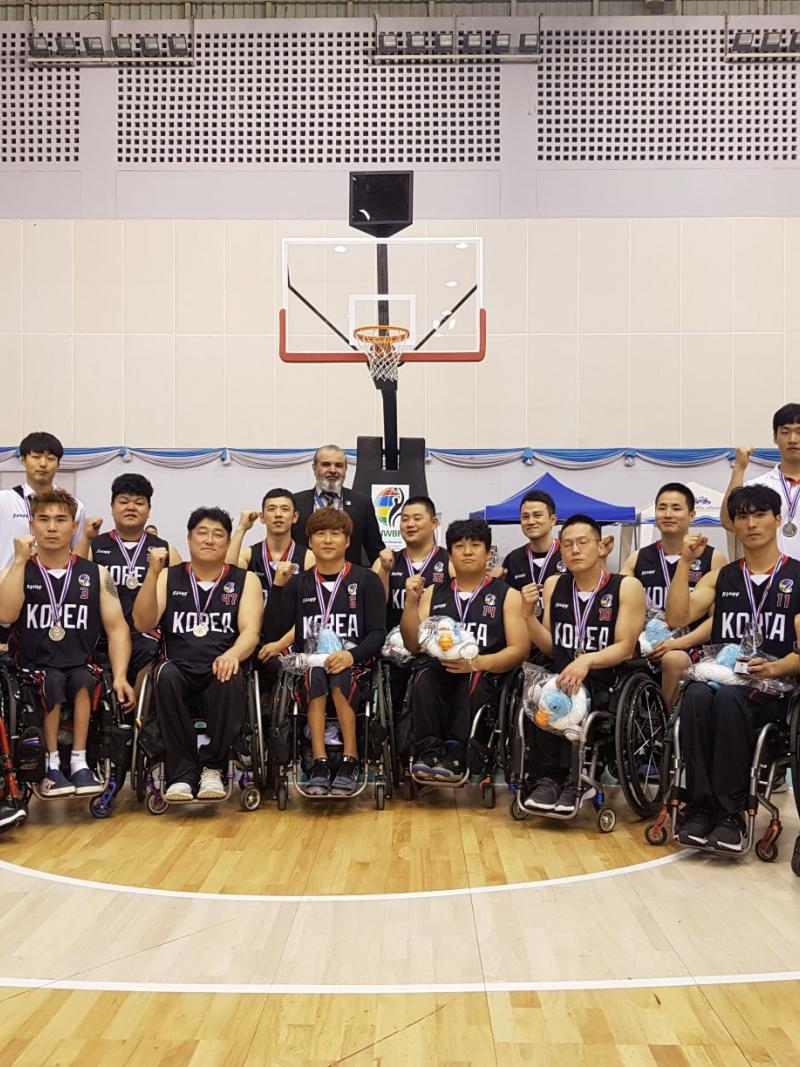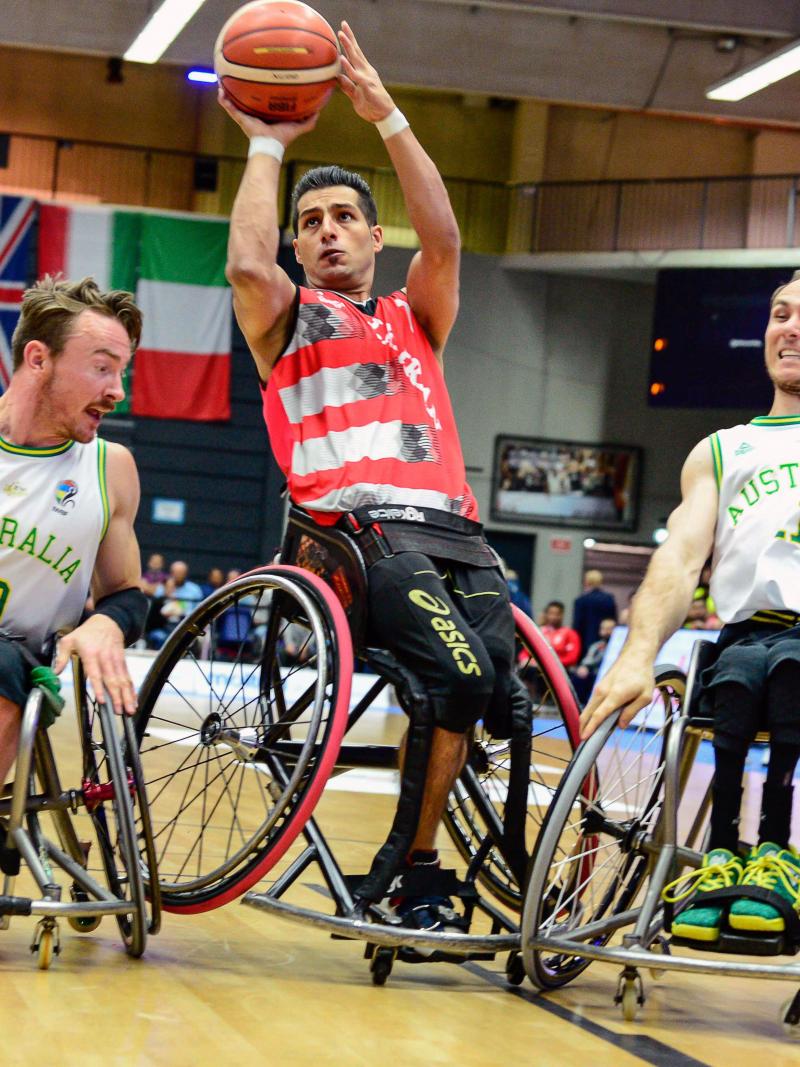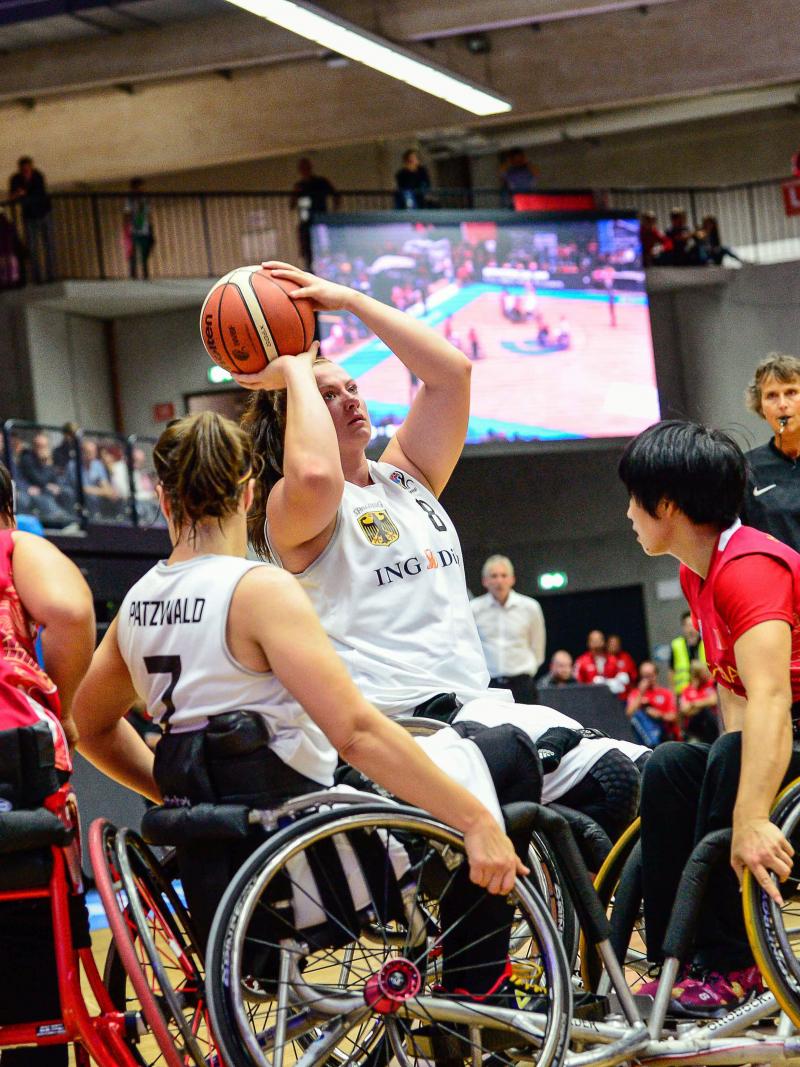Renshi Chokai aims to net a medal for hosts Japan
'I want people to see how I've changed because my value as a player is that I can assist and create chances, in addition to my defence, which is my forte' 29 Jun 2021
After taking up wheelchair basketball in his first year of junior high school, Renshi Chokai was selected to Japan's national team and later made his Paralympic debut at Rio 2016 Games, as the youngest player. The team was placed ninth at Rio.
Now, with the Games happening in his backyards, Chokai hopes to make a key contribution in ensuring that his side finishes on the podium in front home fans.
HONING SKILLS ON COURT
Born in Nagasaki Prefecture, Chokai was born with a congenital impairment in both lower limbs and hands. His lower legs were amputated at the age of three and has used prosthetics ever since. At junior high school, he joined the tennis team and caught the attention of the women's basketball team coach, who was also involved with the men's team. When asked if he wanted to try the sport, Chokai took up the opportunity and started playing competitively at a club in Sasebo City.
He admits, it took him a while to get used to the sports wheelchair. Unlike his usual one, it was harder to control as it did not have brakes - this is for speed and making turns. "The wheelchairs are very manoeuvrable, so it was more difficult to get a feel for them," he said.
As well as improving his ball passes and shots, Chokai focused on training in chair skills. Part of this was to move in and out of a series of cones placed at equal intervals on court to practice fine control. With the team, he also completed laps of the court for 20 minutes, changing direction every five minutes.
"We had no breaks and pedalled less when we got tired and couldn't go straight. I remember it was really hard from the middle of the race," he said.
At first he lagged behind other riders, but gradually Chokai was able to get alongside and overtake them, which showed how much he had progressed.
MOVING IN OFFENCE AND DEFENCE
Chokai plays mainly as a guard who sets up the game and controls the ball. As a key player in the team with a position that allows him to both be on the attack and defend, there are certain things he must consider in order to win. When the team is in the offence, Chokai has to think fast about the most likely way to score - whether to shoot the ball or to pass it to the taller players.
In defence, he makes it a rule to align himself with the team’s plan and identifying who the skilled opponent shooters are and stopping them from making shots. If a good shooter holds the ball, you must put pressure on him and try to keep him out of the goal. The offensive players will also try to break down their defense, which must be taken care of additionally.
“The basic strategy is to cover gaps on the court whenever they appear,” he said.
One of the most important skills in attack and defence is having a broad understanding of the game. “A narrow vision will directly trigger errors,” Chokai explained.
The first step is to learn the principles of wheelchair basketball and then accumulate practical experience, as Chokai learned in the process.
"In a competition, you can't succeed with simple moves. By keeping an eye on the opposition's attempts, I was able to develop an instinct for predicting ball passes."
There are moments in the game when he gets excited. "When I count my successful shots whilst also being fouled, or when I make a beautiful pass with a fast attack under the net, transitioning quickly from defence to offence, I tell myself, 'Yes!'"
KEEN TO ERASE RIO SETBACK
He hopes to lead the team to victory at the Paralympics in front of his home nation with a series of convincing performances. Hoping to resolve his discontent at the Tokyo 2020 Games.
"I realised that I didn't have the skills to compete on the world stage (on his debut at Rio) and I was frustrated that I couldn't compete with the best players in the world," he said.
The stage is now set for him to assuage his disappointment. He has been selected for the national team at Tokyo 2020 and he wants to win a medal for his country. What he has honed in preparation for the big occasion is his ability to go one-on-one and score goals on his own.
"I want people to see how I've changed because my value as a player is that I can assist and create chances, in addition to my defence, which is my forte."
Raised in a family of basketball players, with both his parents and older brother playing the game, Chokai has always loved the sport and playing it with his family.
“Basketball is the first sport I’ve enjoyed as a competitive player. I hope to win a medal and repay my family who have guided me to the sport, as well as many others who have supported me.”
With appreciation, Chokai is working hard to gain a spot on the court at the Tokyo 2020 Games - he is among 17 players who have been selected for the squad.
The basic rules of wheelchair basketball are the same as those for Olympic basketball, including the size of the ball, the size of the court and the number of players.
Wheelchair basketball is for players with lower limb disabilities such as spinal cord injuries or amputations. The players, who use a competition wheelchair, are divided into eight classifications according to their level of impairment, ranging from 1.0 to 4.5 points. The total number of points of the players on the court must not exceed 14 points a team.
 Facebook
Facebook
 Instagram
Instagram
 Twitter
Twitter
 Youtube
Youtube




